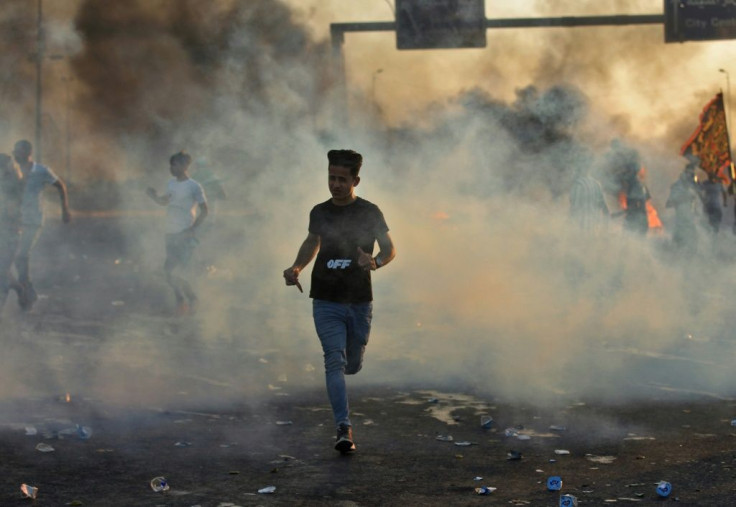Iraqi PM Pledges Reforms To Calm Angry Protests

Iraqi Prime Minister Adel Abdel Mahdi's cabinet issued a series of reforms early Sunday after an "extraordinary" session overnight in response to sweeping anti-government rallies that have left nearly 100 dead.
Iraqis have gathered in Baghdad and across the south since Tuesday to demand widespread government reforms, which Abdel Mahdi had promised to tackle when he came into power just under a year ago.
Early Sunday, his cabinet issued a decree including more than a dozen planned reforms, including land distributions, military enlistment and increased welfare stipends for needy families.
In response to staggering youth unemployment, which has reached around 25 percent according to the World Bank, the government said it would create large market complexes and boost benefits for those without work.
In the southern city of Kut last month, a young Iraqi man died after he set himself alight in despair after authorities seized his mobile kiosk.
The public sector remains the largest employer in Iraq, a country of 40 million people, but it has struggled to absorb new university graduates in recent years.
Local authorities also recently cleared housing units built without proper permits, which a total of three million Iraqis live in across the country.
Starting Tuesday, protesters gathered in Baghdad and spread to the country's Shiite-majority south, defying an internet blackout, tear gas and even live rounds.
The mainly male, young crowds say they are not backed by any political or religious establishment and have attacked a broad range of political party offices.
The Iraqi Human Rights Commission said Saturday that 99 people have died and nearly 4,000 have been wounded since protests kicked off.
The government has officially designated those killed as "martyrs," granting their families a special set of benefits.
Parliament speaker Mohammed al-Halbusi also pledged a range of reforms in a meeting with lawmakers on Saturday, but did not hold his planned legislative session as the body failed to reach quorum.
© Copyright AFP 2024. All rights reserved.





















